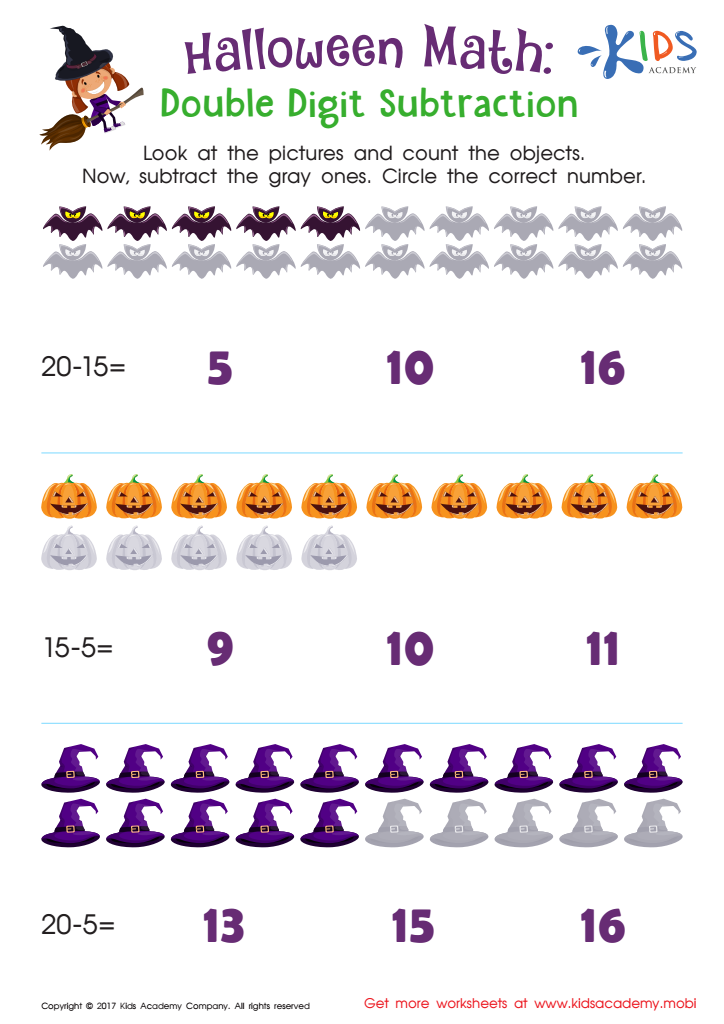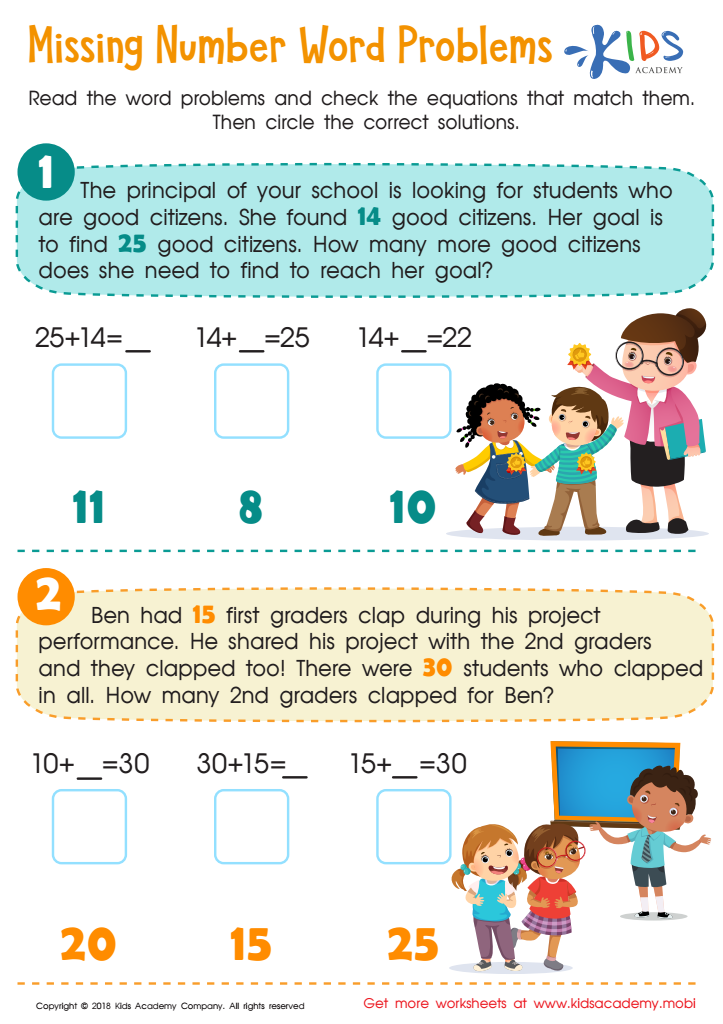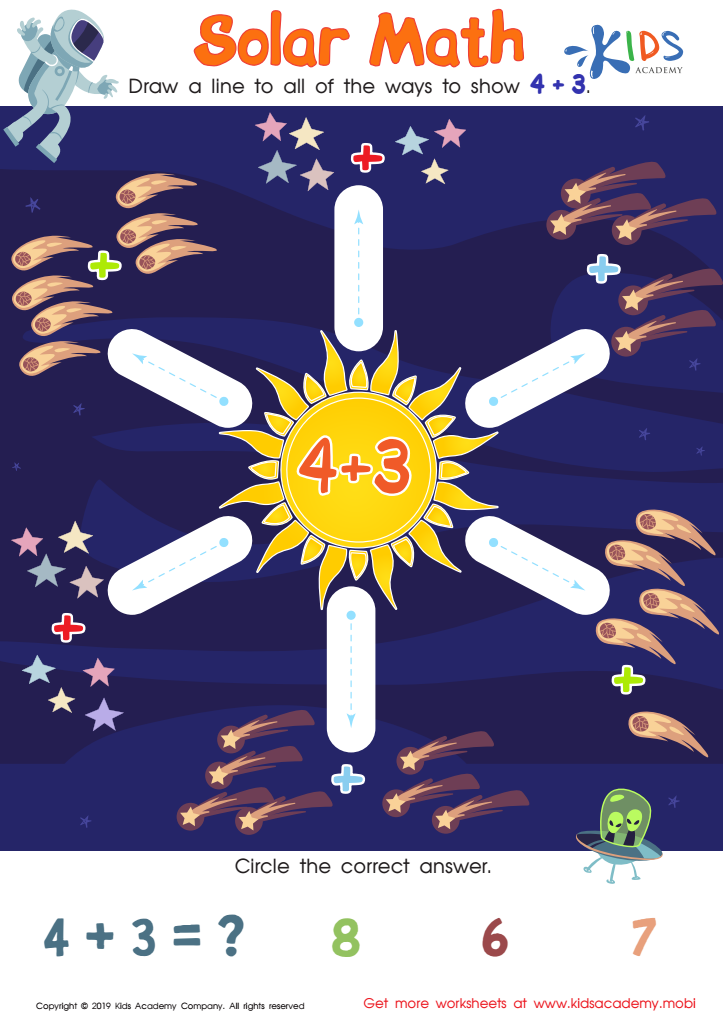Mathematical problem-solving Addition & Subtraction Worksheets for Ages 3-4
3 filtered results
-
From - To
Enhance your child's early math skills with our engaging Addition & Subtraction Worksheets designed for ages 3-4! These resources foster mathematical problem-solving abilities through fun and interactive activities. Young learners will enjoy colorful illustrations and relatable scenarios that make addition and subtraction approachable. Each worksheet encourages kids to explore numbers while developing critical thinking and reasoning skills. Perfect for parents and educators, our worksheets are easy to use and align with early childhood learning standards. Help your child build a strong foundation in math with these comprehensive, easily accessible resources. Start their math journey today and watch them thrive!


Halloween Math Subtraction Worksheet


Missing Number Word Problems Worksheet


Solar Math Worksheet
Mathematical problem-solving in addition and subtraction for ages 3-4 lays a crucial foundation for future learning. At this young age, children are naturally curious and begin to explore numbers and basic arithmetic concepts. Engaging children in simple addition and subtraction activities not only fosters their cognitive development but also enhances critical thinking and reasoning skills. By introducing these concepts through play and everyday situations, children develop strong numerical understanding and spatial awareness.
Moreover, early mathematical skills have been linked to greater academic success later in life. By nurturing a positive attitude towards mathematics at an early age, parents and teachers help shape children's confidence in their capabilities, encouraging them to view math as accessible and enjoyable. This foundational skill also promotes problem-solving abilities, where children learn to tackle challenges, analyze situations, and explore different strategies to find solutions.
Incorporating interactive games, storytelling, and practical activities can promote engagement and make learning fun. When parents or teachers recognize the importance of these early experiences, they cultivate an environment that encourages curiosity, persistence, and resilience, all of which are essential for lifelong learning and skill development in mathematics and beyond.
 Assign to My Students
Assign to My Students



















